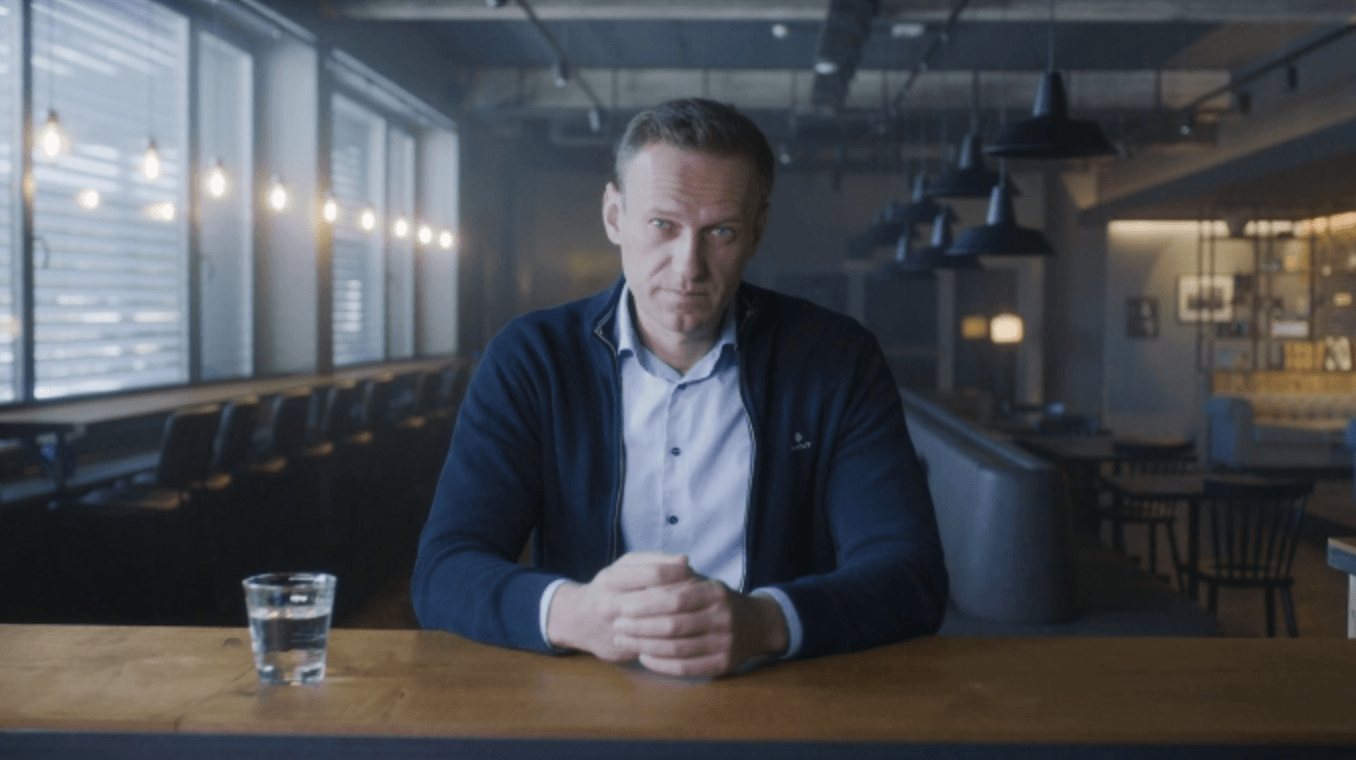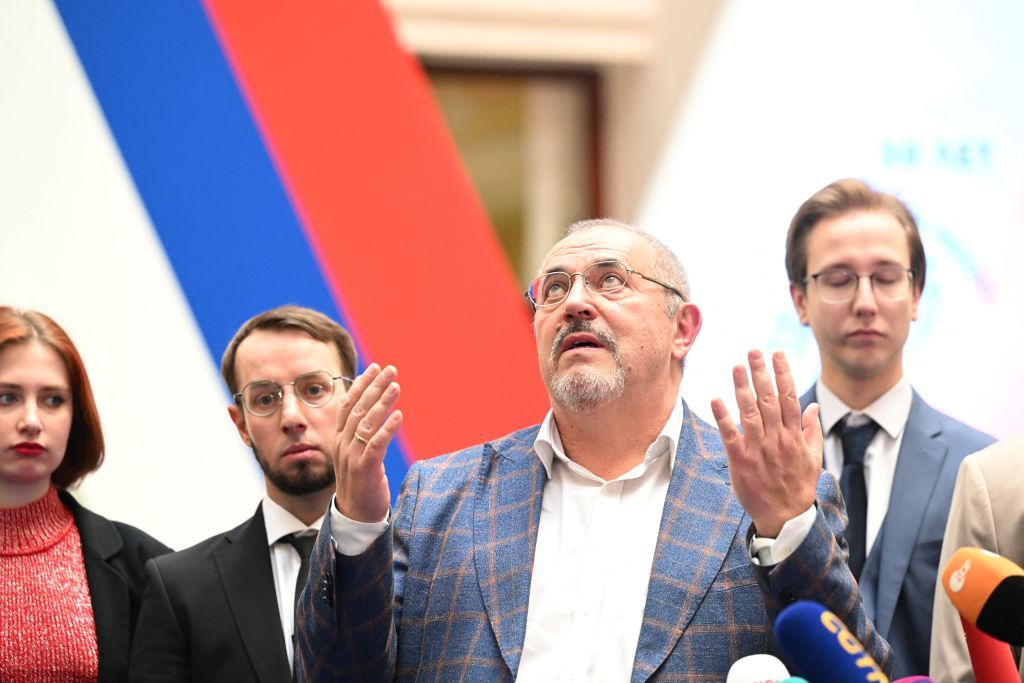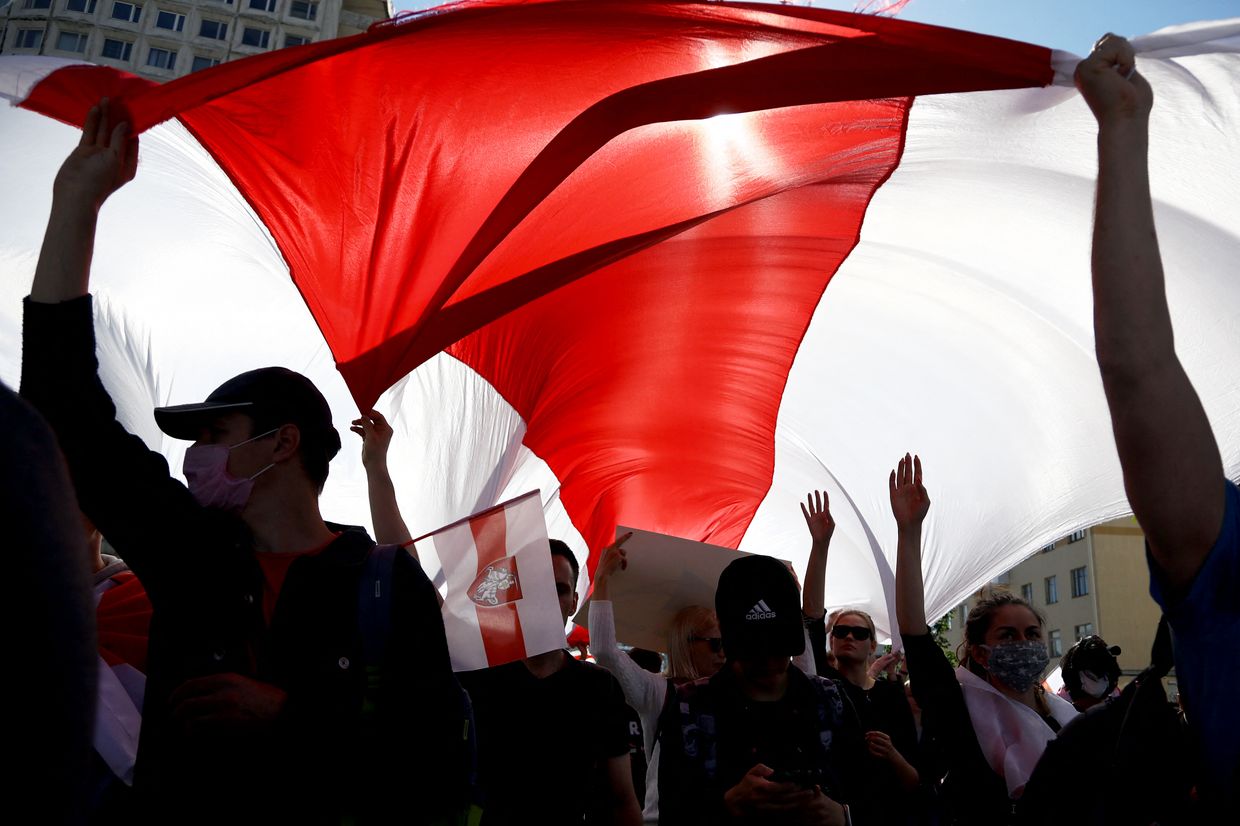Alexei Navalny's life and death as main opponent to Putin regime

Russian opposition leader Alexei Navalny's death on Feb. 16 did not come as a surprise for those familiar with Russian politics.
Navalny was Russian dictator Vladimir Putin's main opponent, and the Kremlin had used all the tools at its disposal to shut him up.
He was sentenced in several fabricated criminal cases, and some of his allies have also been imprisoned.
In 2020, investigative journalists published evidence that Russia's Federal Security Service was behind an assassination attempt on Navalny.
He survived then but the final reckoning came after Navalny was sent to a penal colony in the Arctic region with extremely severe conditions and evidence of torture and other violations.

Independent experts and Western politicians say that Putin is personally responsible for Navalny's death.
The only unresolved question is whether Navalny was killed intentionally or died due to harsh conditions and lack of medical treatment.
"Alexei Navalny fought for the values of freedom and democracy. For his ideals, he made the ultimate sacrifice," European Council President Charles Michel said. "The EU holds the Russian regime (solely) responsible for this tragic death."
Navalny's death follows the murders and suspicious deaths of more than 20 other opponents of Putin. They include investigative journalist Anna Politkovskaya, Russian intelligence officer Alexander Litvinenko, lawyer Sergei Magnitsky, oligarch Boris Berezovsky, liberal politician Boris Nemtsov, and Wagner mercenary leader Yevgeny Prigozhin.
Navalny's rise to opposition leader
Navalny, 47, held law and finance degrees from Russian universities and also studied at Yale University for half a year in 2010 as part of the Yale World Fellows program.
In the late 2000s, he became famous when he exposed corruption and mismanagement in Russian state-controlled companies and defended their minority shareholders' rights.

Navalny became Russia's most prominent opposition leader in 2011-2012, when he was one of the organizers of the protests against rigged parliamentary and presidential elections - the largest demonstrations in Russia since the early 1990s.
At that time, Navalny founded the Anti-Corruption Foundation, which has regularly exposed the corruption of Russian top officials.
His popularity was tested in 2013, when he became the runner-up in the Moscow mayoral election with 27% of support.
In 2017 Navalny also organized anti-corruption rallies in which tens of thousands participated in more than 150 Russian cities.
He launched a presidential campaign and set up election headquarters in 84 cities but was banned by the Kremlin from running in 2018.
In 2019-2021, Navalny caused problems for the Kremlin by launching the Smart Voting strategy, which identified the strongest registered opposition candidates and called on voters to back them in the parliamentary and local elections. Many of them were elected, while some lost due to voting fraud.
In 2021, Navalny also published an investigation exposing Putin’s hidden $1 billion palace in the resort of Gelendzhik on Russia’s Black Sea coast. The video has gotten 129 million views, becoming the most popular political video in Russia’s history and triggering protests.
Controversies
Navalny was criticized for co-founding Narod, a nationalist group, in 2007 and attending nationalist rallies. Due to his nationalist views, he was expelled from the Yabloko liberal party.
He argued that Narod supported "national democracy" — effectively a blend of nationalist and liberal ideas.

Navalny also came under fire for supporting Russia's aggression against Georgia in 2008.
Soon after Russia's occupation of Ukraine's Crimea in 2014, Navalny triggered a controversy by saying that Crimea "is not a sausage sandwich that can be returned to someone." He condemned Russia's annexation of the peninsula and invasion of Ukraine as illegal but argued that a new lawful referendum should be held to determine the status of Crimea.
Despite the controversies in the past, Navalny evolved toward a more liberal and anti-war position.
In 2023 he published a manifesto condemning Russia's full-scale invasion of Ukraine and calling for the restoration of Ukraine's 1991 borders.
Putin's crackdown
As Navalny stepped up his opposition activities, the Kremlin launched a brutal crackdown on the politician.
His Anti-Corruption Foundation was banned as "extremist."
The Kremlin also banned Navalny and his associates from running in elections and refused to register his Progress Party. His brother and several of his allies have been jailed, and most other allies have fled Russia.
As part of the Kremlin's crackdown on Navalny, he was sentenced in several criminal cases.


The cases have been recognized as unlawful by the European Court of Human Rights. Navalny was also recognized as a political prisoner and prisoner of conscience by Memorial, a Russian human rights group, and Amnesty International.
In 2013 Navalny was sentenced to a five-year suspended term on embezzlement charges in the Kirovles case. The European Court of Human Rights later argued that the alleged crimes for which Navalny was convicted were no different from normal business activities.
In 2014 he was sentenced to a 3.5-year suspended term in the Yves Rocher case on fraud and money laundering charges. The case was based on a complaint by Bruno Leproux, head of French cosmetics firm Yves Rocher’s Russian branch.
Leproux never showed up in court to testify in the Yves Rocher case and subsequently resigned. Yves Rocher’s official representatives denied in court that Navalny had caused any damage to the company, and no other witnesses confirmed their alleged guilt.
Poisoning of Navalny
In 2020, Navalny was poisoned in Russia and flown for treatment to Germany while in a coma.
German doctors, as well as several independent labs in Europe, said that he had been poisoned with a Novichok nerve agent – a chemical weapon produced by the Russian government.
A joint investigation by The Insider, Bellingcat, CNN, and Der Spiegel revealed that Navalny had been poisoned by agents of Russia’s Federal Security Service. The media also identified the agents' names.
The journalists obtained data on the alleged murderers’ travel and mobile phone data. A special chemical substances unit of Russia’s Federal Security Service (FSB) had been following Navalny for years, including during his trip to Siberia when the assassination attempt took place.

Navalny impersonated a Russian state official to speak to one of the members of the alleged poisoning team, Konstantin Kudryavtsev, in 2020. In the phone call with Navalny, Kudryavtsev admitted that he had taken part in the poisoning operation and said that the poison had been put in Navalny’s underwear.
Putin has admitted that the FSB squad had been conducting surveillance on Navalny but denied that they were tasked to kill him.
The same FSB squad that allegedly tried to kill Navalny had also trailed three other people before they were found dead with signs of poisoning, including syringe pricks, in 2014-2019, according to the investigation by Bellingcat, The Insider, CNN, and Der Spiegel.
Meanwhile, the FSB poisoning team also followed liberal politician Vladimir Kara-Murza when he was poisoned in 2015 and then again in 2017, although he survived, Bellingcat, the Insider and Der Spiegel reported.
Return to Russia
Despite the poisoning, Navalny decided to return to Russia in early 2021, when a Russian court replaced the suspended term against Navalny in the Yves Rocher case with a 2.5-year jail sentence. He was sent to a penal colony in Vladimir Oblast not far from Moscow.
However, as Navalny's prison term was about to expire, the Russian authorities convicted him in other cases to make sure he did not get out.
In 2022, he was sentenced to nine years in jail on fraud charges for allegedly using donations to his Anti-Corruption Foundation for personal reasons.

In August 2023, a Russian court also sentenced Navalny to 19 years in a maximum security prison on extremism charges for creating the Anti-Corruption Foundation, a peaceful civic watchdog. According to the Russian independent media outlet Verstka, the latest verdict meant he would have stayed in jail until the late 2040s.
The crackdown also affected Navalny's lawyers.
Three of them were arrested in October 2023 on charges of being members of Navalny’s team – peaceful opposition activities that the Kremlin calls “extremism." Two other Navalny lawyers fled Russia.
Severe conditions in jail
In December 2023, Navalny was transported to the Polar Wolf penal colony in the town of Kharp, Yamal Nenets Autonomous District. During his transportation, the authorities hid his whereabouts for 19 days.
The colony has the reputation of one of Russia's worst prisons, and lawyers have described the conditions there as extremely severe. Prosecutors have regularly uncovered human rights violations and torture there.
Navalny was also sent to solitary confinement 27 times as punishment at both penal colonies and spent more than 300 days in solitary confinement cells. Human rights lawyer Yeva Merkacheva attributed his death to the harsh conditions of solitary confinement.


Navalny has also developed several diseases in prison. He complained about a hernia, loss of the sense of touch in one foot, cough, and loss of consciousness.
He said that the prison authorities had refused to give him proper medical treatment. In 2021 Navalny was on a hunger strike, demanding access to independent doctors.
"(Navalny) was being held in solitary confinement for a year," Russian opposition politician Gennadiy Gudkov said. "He was intentionally being killed. It was a public execution, and the organizer of this execution, Putin, is personally responsible."
Gudkov said that Navalny was effectively killed by "being held in inhumane conditions", and "his body couldn't survive such a long, terrible and harsh torture."
Intentional murder?
According to the prison authorities, Navalny supposedly lost consciousness and could not be revived on Feb. 16. Russian state-controlled media reported that he died due to a blood clot.
However, the official version has been questioned by critics.
Navalny's mother, Lyudmila Navalnaya, said that she saw her son "alive, healthy, and cheerful" during a visit to the penal colony on Feb. 12.
Anna Karetnikova, a former prison employee and human rights lawyer, told The Bell that "a blood clot" was a universal explanation often used by prison authorities to hide the real cause of death.
Alexander Polupanov, a doctor who has treated Navalny, said that he doubts the blood clot diagnosis. He said that such a diagnosis can only be identified after autopsy.
The discrepancies triggered speculation that Navalny could have been assassinated intentionally.
Russian political analyst Yekaterina Shulman linked Navalny's death to the upcoming March 15-17 presidential elections in Russia.
"All these versions, except for intentional murder, are untrustworthy," Shulman said. "We don't have any other rational versions. The timing is connected with (the Kremlin's) concerns about (Navalny's) influence on electoral behavior during the election campaign."

Multiple Western politicians and public figures agreed that Putin was personally responsible for Navalny's death.
"Let’s make no mistake, Putin assassinated Navalny," said London-based American investor and long-time Putin critic Bill Browder.
"He did so because Navalny was brave enough to stand up to Putin. He did so because Navalny offered the Russian people an alternative to kleptocracy and repression."














